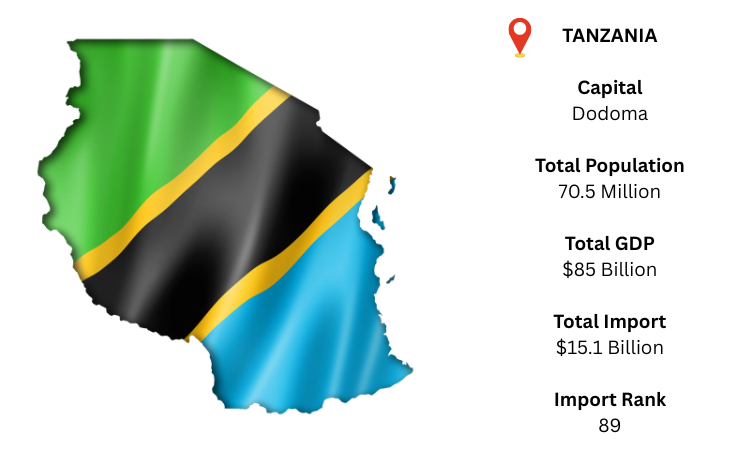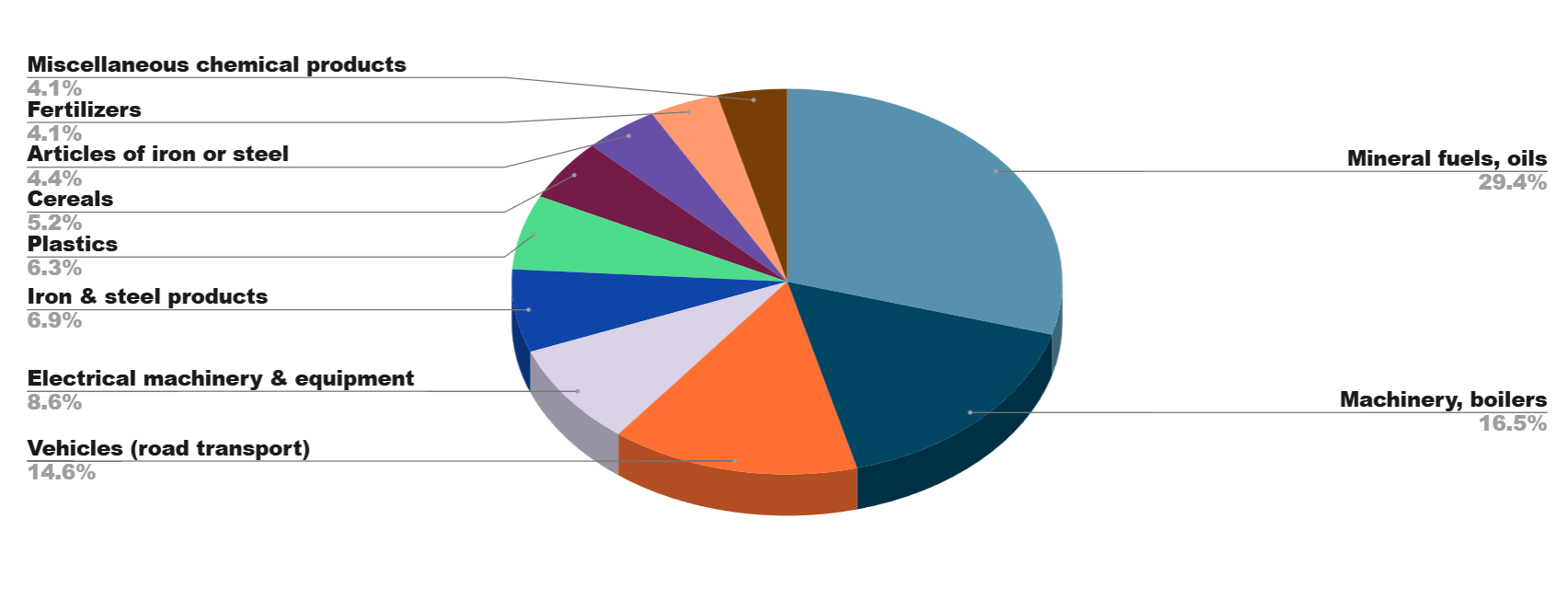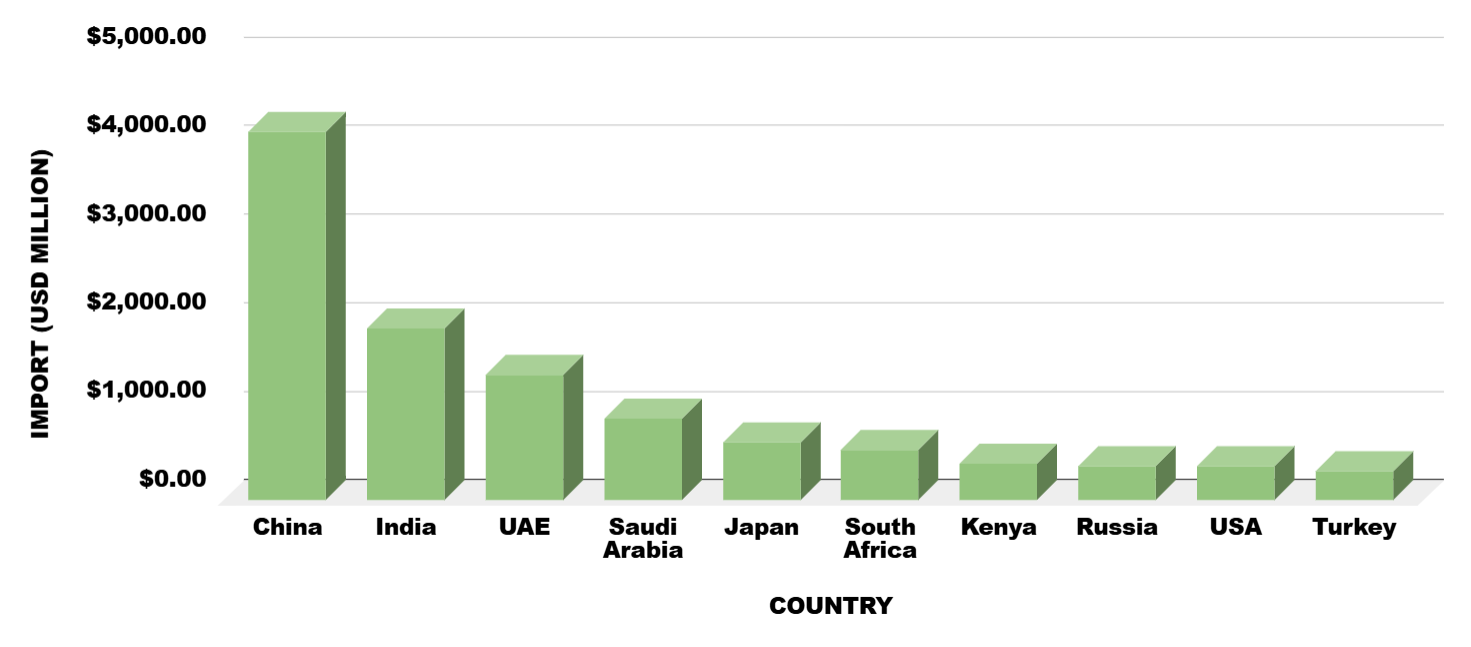Tanzania is located in East Africa, with its capital in Dodoma. As of 2024, Tanzania's GDP is approximately USD 85 billion. As per Tanzania shipments data, the country imported goods worth around USD 15.1 billion in 2023, placing it 89th in global import rankings. Mineral fuels and oils are the most imported products, and China stands as its top trading partner for imports.



